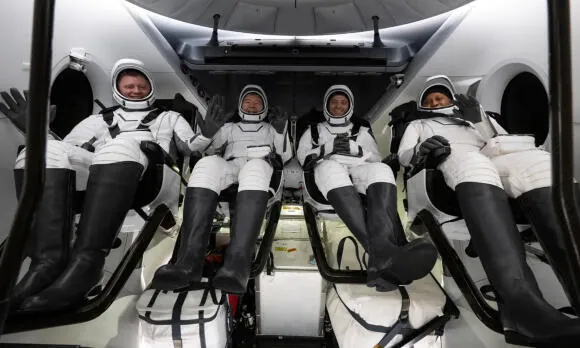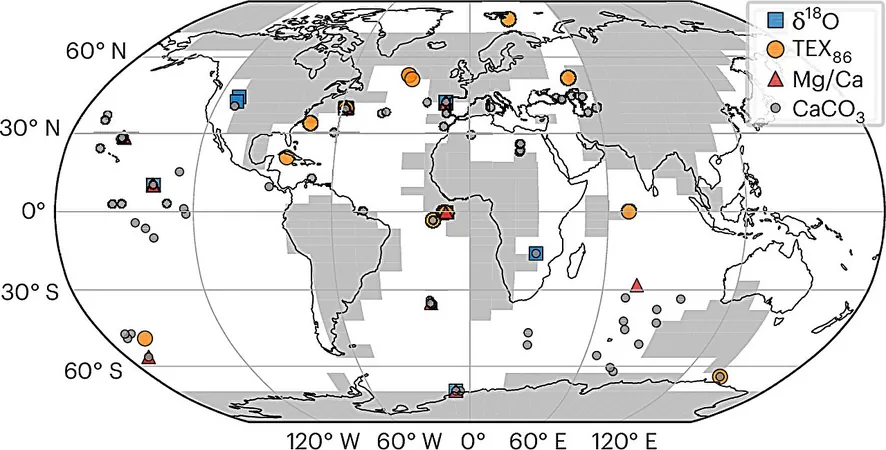
Israel Propels Forward with Major Role in International Astronautical Federation
2024-11-08
Author: Ming
Israel Propels Forward with Major Role in International Astronautical Federation
In a significant acknowledgment of Israel’s prowess in the space sector, Dr. Shimrit Maman, a prominent researcher from Ben-Gurion University of the Negev, has recently taken on a pivotal role within the International Astronautical Federation (IAF). At this month’s annual IAF international conference held in Milan, Italy, Dr. Maman was appointed Vice Chair of the Earth Observation Committee, a essential body that guides remote-sensing satellite activities focused on urgent environmental and climate change challenges.
“This committee tackles some of the most urgent scientific and technological challenges we face," Dr. Maman stated. "Members include high-ranking professionals from space agencies, the aerospace industry, and academia; we serve as a vital connection between grassroots scientific inquiry and high-level policy decision-makers, a process that can be thought of as scientific diplomacy.”
Having contributed as a committee member for three years, her new three-year Vice Chair position puts her alongside industry leader Annamaria Nassisi from Thales Alenia Space, with the committee being chaired by Luis Ferreira from Airbus. Dr. Maman believes this election showcases Israel’s capacity and reputation in the global space community. “At this level, no other Israeli representative exists in the federation. This opportunity to advance our country is, in my perspective, invaluable,” she added.
Active in international collaboration efforts, Dr. Maman has recently concluded the "Venüs" environmental research satellite mission, a project born from a partnership between Israel and France. As head of the Earth and Planetary Image Facility at Ben-Gurion University, she played a vital role in collecting extensive data important for future research.
Moreover, Dr. Maman has her sights set on new international projects, including advanced disaster warning systems leveraging artificial intelligence and satellite data analytics. She leads Israel’s Regional Support Office for the United Nations Platform for Space-based Information for Disaster Management and Emergency Response (UN-SPIDER), working on a pilot initiative that will soon be held in the town of Omer, near Be'er Sheva.
“This system aims at providing early alerts for natural disasters such as floods, fires, and earthquakes, relying on satellite data integration and analysis,” Dr. Maman elucidated. “Collaboration with diverse stakeholders in satellite operations is crucial for success.”
Recognized not just for her scientific contributions, Dr. Maman is a key advocate for educational initiatives aimed at encouraging young women in STEAM fields. She founded the Israeli She-Space program, which seeks to inspire high school girls through exposure to advanced science and space-related activities—a program that has been modeled in several other countries. Her efforts earned her the Excellence in 3G Diversity Award from the IAF in 2021.
Furthermore, at the IAF conference, educational projects also showcased the "Light The Sky" initiative designed during these tumultuous times to give youth a sense of escapism and connect them with space and technology through programming challenges.
"All of our research and educational activities bridge gaps between society and scientific inquiry,” Dr. Maman concluded. “By using space to enhance life on Earth, we foster connections that hold great potential for the future.”
In other space news, Blue Origin is gearing up for the much-anticipated inaugural launch of its New Glenn rocket, while NASA recently celebrated the return of astronauts after a record-breaking mission aboard SpaceX's Dragon capsule. As international space cooperation expands, with missions launching from China’s Tiangong-3 space station and advances in technologies like the Voyager spacecraft re-establishing communication after decades, the future of space exploration looks promising.
Stay tuned for more updates from the ever-evolving world of space exploration!



 Brasil (PT)
Brasil (PT)
 Canada (EN)
Canada (EN)
 Chile (ES)
Chile (ES)
 España (ES)
España (ES)
 France (FR)
France (FR)
 Hong Kong (EN)
Hong Kong (EN)
 Italia (IT)
Italia (IT)
 日本 (JA)
日本 (JA)
 Magyarország (HU)
Magyarország (HU)
 Norge (NO)
Norge (NO)
 Polska (PL)
Polska (PL)
 Schweiz (DE)
Schweiz (DE)
 Singapore (EN)
Singapore (EN)
 Sverige (SV)
Sverige (SV)
 Suomi (FI)
Suomi (FI)
 Türkiye (TR)
Türkiye (TR)